Shares of Micron Technology, Inc. (MU) are surging by nearly 13% to $19.89 in Tuesday’s pre-market session. Shares gained momentum after the Wall Street Journal reported that Chinese state-owned Tsinghua Unigroup is set to make a $21/share offer for the U.S. memory chip maker. Idaho-based Micron had a market cap of $19.05 billion as of Monday’s close.
If the offer materializes, it would be the largest foreign takeover by a Chinese firm.
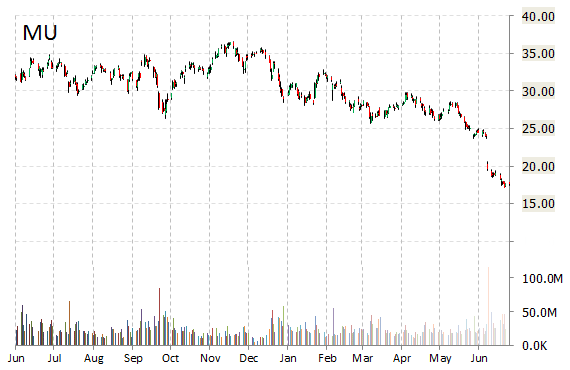
Shares of Spirit Airlines, Inc. (SAVE) are down nearly 5% this morning after the Miramar, Florida-based airline, whose June-2015 traffic (revenue passenger miles) rose 25.1% on a yoy basis, said poor June weather will hurt its second quarter results, and added that pricing pressure could impact its earnings during the rest of 2015. Separately, Spirit Airlines had its price target lowered to $65 from $74 at Cowen. The broker noted company’s lower margin guidance for 2Q/15 and full-fiscal-year 2015 due to weather cancellations in 2Q/15 and a continued weak pricing environment for FY 2015.
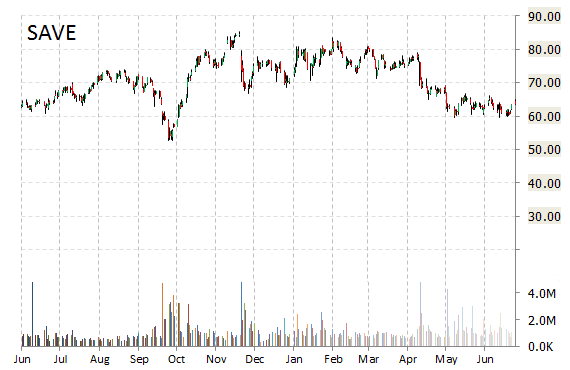
Shares of Google Inc. (GOOG) were down marginally in pre-market hours on news the search giant has adopted stricter controls on costs because of slowing revenue growth and smaller profit margins. Google’s operating expenses grew 31% in 2014, while its revs fell 2% compared to 2013, 3% compared to 2012, and 10% compared to 2011.
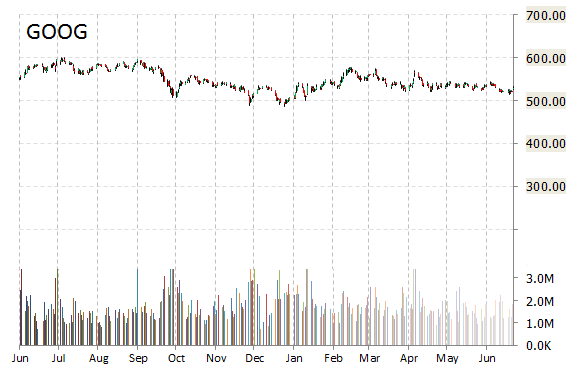
Shares of SunPower Corporation (SPWR) are up 2.40% on Tuesday morning after analysts at JP Morgan (JPM) resumed coverage on the name with an ‘Overweight’ rating.
SPWR shares recently gained $1.02 to $28.00. The stock is down more than 30% year-over-year and has gained roughly 4.50% year-to-date. In the past 52 weeks, shares of San Jose, California-based company have traded between a low of $22.75 and a high of $39.95.
SunPower Corporation closed Monday at $26.98. The name has a current market cap of $3.61 billion.
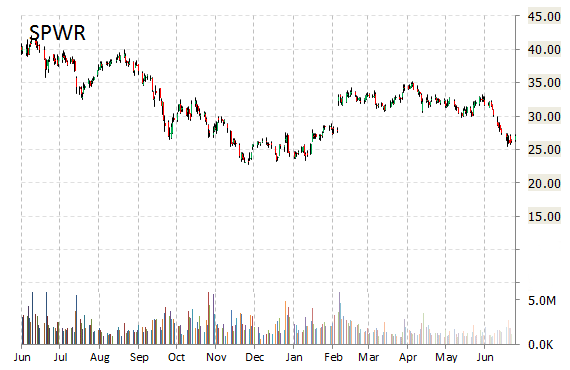
Shares of Biocept, Inc. (BIOC) are up 11.32% ahead of the open following the commercial launch of its proprietary, quantitative assay, targeting BRAF mutations utilizing a patient’s blood sample.
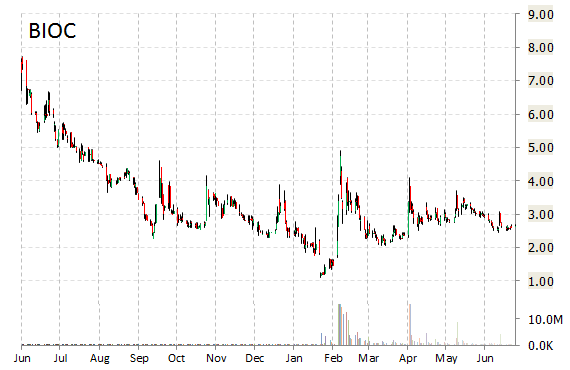
- Bulenox: Get 45% to 91% OFF ... Use Discount Code: UNO
- Risk Our Money Not Yours | Get 50% to 90% OFF ... Use Discount Code: MMBVBKSM
Disclaimer: This page contains affiliate links. If you choose to make a purchase after clicking a link, we may receive a commission at no additional cost to you. Thank you for your support!




Leave a Reply